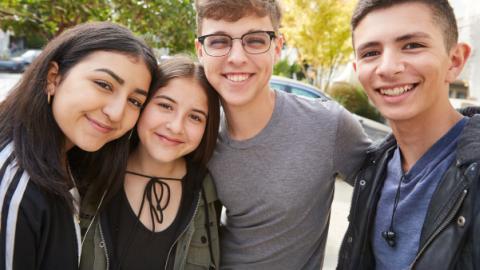Essential News & Media Literacy Skills for Students
As the 2024 election approaches, it's important for students to think critically about the news they consume, especially on social media. Misinformation can spread quickly, influencing public opinion and potentially impacting our democracy. And with new advances in technology (hello, artificial intelligence and deepfakes), it's getting harder and harder to distinguish fact from fiction.
But with the right support, students can learn to be critical and not cynical, to practice inquiry, and to speak up, not sit back in this often complicated digital landscape. This collection of free media literacy lessons, videos, and classroom activities will help you get started teaching these important and nuanced ideas.























